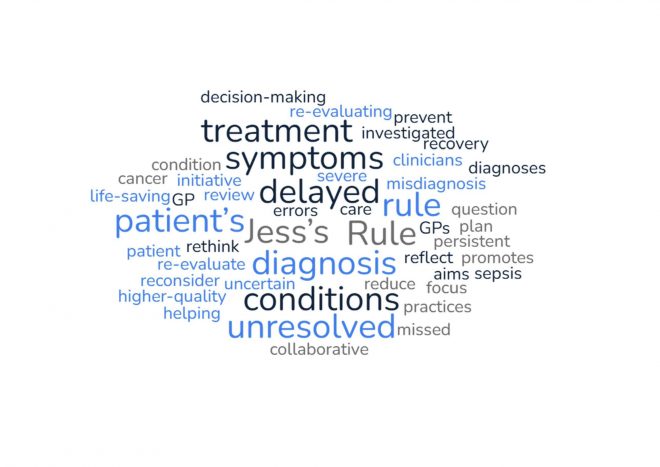
The Background: Jess’s Story
In December 2020, 27-year-old Jessica Brady was admitted to hospital with stage 4 cancer and passed away shortly afterwards. In the five months leading up to her death, Jess attended twenty consultations with her GP practice, all of which had failed to correctly identify her condition. It was only when she sought private care that her diagnosis was eventually confirmed, by which time, tragically, it was too late.
Following her passing, Jess’s family have persistently campaigned for change, emphasising the importance of escalating a patient’s case for review after multiple consultations for unresolved symptoms. In response, the British Government and NHS have introduced the primary care initiative Jess’s Rule, in memory of Jessica Brady.
What Are the Implications of Jess’s Rule?
Jess’s Rule instructs GP teams to “reflect, review and rethink”. Under this formal obligation, if after three appointments the patient is presenting with persisting or escalating symptoms, the GP must “reflect, review and rethink” whether the current diagnosis is correct.
This may involve arranging a face-to-face physical examination, seeking a peer review of any warning signs suggesting a different diagnosis, or referring the patient for further tests or specialist input if appropriate.
How Will Jess’s Rule Impact Future Patients?
Jess’s Rule is designed to reduce misdiagnosis and delayed diagnosis. Such errors occur when symptoms are uncertain or initially misattributed to more common and less severe conditions. By requiring GPs to actively re-evaluate unresolved cases, the initiative encourages clinicians to question assumptions and ensure persistent symptoms are thoroughly investigated.
Younger people like Jess may also be more likely to be dismissed simply because they appear to be too young to have a serious illness.
Jess’s rule aims to confront this through its re-evaluating approach, with GP practices being encouraged to stop the drift of assumption and reconsider why the patient’s condition remains unresolved by the existing treatment plan.
This rule promotes higher-quality care and a stronger focus on the patient’s concerns, fostering collaborative decision-making between the clinician and patient. Crucially, this approach can be life saving helping to prevent delayed or missed diagnoses of serious conditions such as sepsis or cancer. Timely diagnosis is essential, as it greatly enhances the likelihood of successful treatment and recovery.
Our View
Jess’s Rule represents a significant step forward in accountability within primary care and the prioritisation of patient safety. By formalising this obligation to “reflect, review and rethink”, this initiative addresses systematic gaps could previously result in delayed or missed diagnoses.
For patients and families, it provides reassurance that repeated concerns will be taken seriously, and more patient-centred care will be delivered. Aligned with the principles outlined in GMC’s Good Medical Practice, Jess’s Rule also aims to strengthen trust in the healthcare system, drawing attention to where failures may occur and reinforcing the importance of thorough, timely investigation to safeguard patient wellbeing.
If you or a loved one has suffered as a result of GP negligence, such as missed or delayed diagnosis, reach out to our clinical negligence team on 020 8891 6141.
